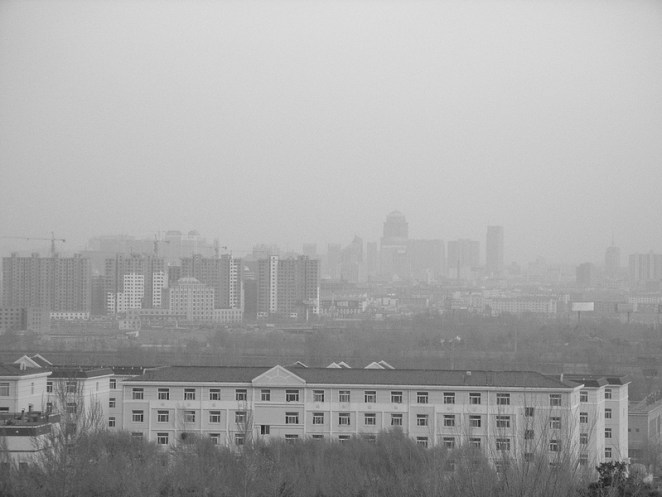Beijing will close 2,500 small polluting firms this year in its latest effort to combat pollution, state news agency Xinhua reported on Saturday, citing the municipal government. Pollution is a sensitive topic in China, with thousands of protests sparked every year by concerns about environmental degradation, particularly from factories.
Four districts in the capital, which has been hit by bouts of choking smog this winter, will be required to shut down 2,500 companies by the end of the year, with more scheduled to be closed next year, Xinhua said.
The Chinese capital has for many years suffered from serious air pollution. Primary sources of pollutants include exhaust emission from Beijing’s more than five million motor vehicles, coal burning in neighbouring regions, dust storms from the north and local construction dust. A particularly severe smog engulfed the city for weeks in early 2013, elevating public awareness to unprecedented levels and prompting the government to roll out emergency measures.
A smartphone app relaying data from the US embassy’s air quality sensor shows hazardous levels of fine-particle pollution in Beijing yesterday. Meteorologists have blamed the quick melting of recent snowfalls for pollution bad enough to make healthy people sick. Traffic almost came to a standstill in some areas due to poor visibility.
In June 2012, following strongly divergent disclosures of particulate levels between the Observatory and the US Embassy, Chinese authorities asked foreign consulates to stop publishing “inaccurate and unlawful” data. Controversy arose when U.S. Embassy declared Beijing air as “very unhealthy” on 5 June; underlying data showed 199 micrograms of particulate matter. In contrast, readings from the Beijing Municipal Environmental Protection Bureau declared Beijing air as “good”; its data showed levels between 51 and 79 micrograms for the corresponding period. Officials said it was “not scientific to evaluate the air quality of an area with results gathered from just only one point inside that area”, and asserted that official daily average PM2.5 figures for Beijing and Shanghai were “almost the same with the results published by foreign embassies and consulates”.
By January 2013 the pollution had worsened with official Beijing data showing an average figure over 300 and readings of up to 700 at individual recording stations while the US Embassy recorded over 755 on January 1 and 800 by January 12.
On October 21, 2013, record smog closed the Harbin Airport along with all schools in the area. Daily particulate levels of more than 50 times the World Health Organisation recommended daily level were reported in parts of the municipality.
Sources: Wikipedia, Newsdaily.com


